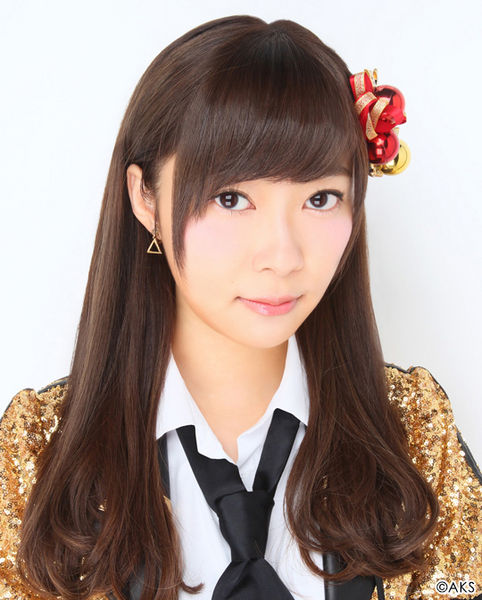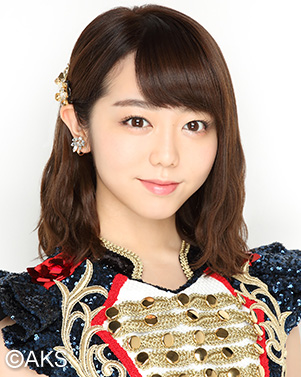Request Hour has just ended, and my favorite Team 8 song “47 no Suteki no Machi e” failed to get number one. But hey, number two ain’t so bad. Besides, they are going to have their anniversary concert in Saitama Super Arena, one of the big arenas in Japan. Too bad I can’t come.
I’ve become a big Team 8 fan since watching them perform here for the first time. I’ve still have not picked who will be my main girl, but I think I’ll settle for being the fan of the whole group for a while.
An applicant in the MNL48 auditions just informed me that every applicant got another year added to their age as the new year came. It must be a bug, or the site was configured that way. In an case, if you are an applicant and you see that your age jumped from 20 to 21, relax. They’ll still screen those stuff.
For this week, I want to talk about something everybody might know, but not really understand with regards to Japanese Idols. That, of course, is the “Love Ban“, that controversial rule that, when broken and revealed, can cost an idol her career.
Japanese idols can be either male or female, but for the purpose of this article, I will focus more on the female side of things. Being a fan of idols for more than a decade, I’ve always been aware of the Love Ban but it has never bothered me even once. Maybe because most of my favorites have never been into a scandal, or maybe because I’ve always considered the Love Ban as a job requirement.

It is important to understand that the Love Ban is more accurately a “Relationship Ban”. Agencies do not prohibit their talent from falling in love (which is, in my humble opinion, quite impossible to both do and enforce), but they prohibit them from forming relationships. This covers both heterosexual (bf-gf) and homosexual (gf-gf) relationships, the reasons of which are varied and have evolved in time.
Japanese idols are virtual girlfriends (or best friend, or little sister, whichever you prefer) to her fans, most of whom spend their hard-earned money to buy her merchandise, attend her solo events, purchase group CDs, and go to handshake events. It is a symbiotic relationship really: the idol performs and does fan service for her fans to please them, and the fan shells out money to buy her stuff in return. An idol that tops the sales and draws the crowd gets more projects, and as her marketability rises, so does her popularity and maybe her take home pay. An idol that pisses off her fanbase for some reason risks hurting her marketability, and an un-marketable product is destined to stay in the bottom, forcing her to either leave the group (called graduation in Idol terms) for greener pastures, or for the agency itself to lay her off which is extremely rare but who wants to exist at the bottom of the barrel? To put it simply, idols that bursts that “virtual gf” bubble by entering into a romantic relationship, risks hurting her image which can cost her everything.
Also, consider the life of an average idol: school during weekdays (plus shoots and guestings for the popular ones), rehearsals and performances during weekends. Sometimes events happen during the week, and if you are on a concert tour, things might even be more hectic. AKB48 also has handshake events that the girls also need to make time for. Given the hectic schedule and because the girls already have a significant lack of free time, getting in a relationship will only make things a lot more complicated.
One might think that the less popular ones have more freedom of movement. But even an obscure idol that breaks the love ban risks getting featured in tabloids or outed by the weirder, far more hardcore fans. Many 48 group members lost their careers this way.

These girls knew on the onset what they were getting into, and no girl was forced to join. They knew that as idols they would not be able to do things they used to, and still they applied. As I used to say: new hires on their first job do not dictate their pay.
Once an idol leaves the industry, her fans also let their attachments with her go, with the symbiosis ended and the girl is now either on a new phase in her career, or has returned to a normal life (in which case trailing her is now considered taboo).
So, what does this hold for MNL48? The Philippines isn’t used to having groups with a Love Ban, at least, not to this extent. Already, the eligibility criteria specifically states that an applicant needed to be single and not in a relationship.
I believe that being a sister group of AKB48 means that they should also follow AKB rules and, within reason, their culture. JKT48 has its own culture, and may have rules that are different from AKB48, but they still toe the line with regards to many J-idol norms, that is what I think MNL48 should strive for.
Finally, I’ve decided to just feature one applicant this issue. I still have a long list, but since I’ve had a pretty long piece about a topic already, I’m going to go with just one. And she is…..
Coeli

Another lass from Cavite, I chose this girl because she posted in an online forum that she applied and that she’s not really that confident that she’ll get in because she looks like a “plain jane”. Girl, are you serious? You’re in my top 20. People forget that most 48G members look very ordinary during auditions. Some still look ordinary after it but people love them, nonetheless.
Being an idol isn’t just about being the most pretty, or the most talented, or the most charismatic. The ability to connect to people isn’t dependent on any one of those things but on the way you balance all of them and use it to further your career. So, I don’t know if she’s just really lacking in confidence, or she was just fishing for sympathy, but she’s my applicant of the week.
*Special thanks to Admin Youko of Filwota48 for giving me his insight on what he calls “Relationship Ban”.








2 Comments
Iirc although japanese celebrate birthdays, their ages are increased every newyear
That could be one reason, although the MNL48 site is a local one. It won’t be a problem, in any case.